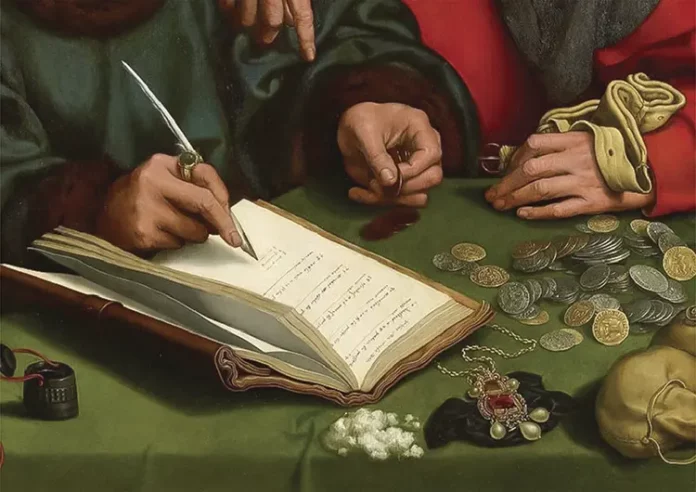September 21 – 25th Sunday in Ordinary Time
The parable of the unfaithful steward can cause a certain degree of consternation because of the master’s praise for the cleverness of this bad steward, as well as Jesus’ recommendation that we use dishonest wealth to make friends who will welcome us into eternal dwellings (cf. Lk 16:1-9). How can we understand these commendations?
St. Augustine makes it clear that the master is not praising the fraud itself, but his subordinate’s foresight regarding his future. Indeed, “he was concerned about the life that has an end, and are you not concerned about everlasting life?”1 The children of light must therefore cultivate a “resolute determination”2 in their quest for the heavenly homeland.
Again from an Augustinian perspective, “dishonest wealth” – in Latin, mamona iniquitatis – denotes false riches as opposed to authentic ones, which are the treasures of Heaven that neither moth nor rust can destroy (cf. Mt 6:19-20). In this way, Our Lord admonishes the materialistic vision, concerned exclusively with earthly possessions, while at the same time giving His approval for them to be used for a greater good, such as evangelization and the consequent salvation of souls.
Of course, Divine Providence “wills everyone to be saved and to come to knowledge of the truth” (1 Tm 2:4). Jesus called both Zacchaeus, who was rich and had to give up half his fortune in order to gain Heaven, and Peter, who had nothing more than a small boat and a net. The Redeemer is no respecter of persons, He “came to seek and to save the lost” (Lk 19:10) and to remove sin from the world (cf. Jn 1:29). This does not mean that everyone will be saved, but it does express that salvation comes about through His power alone. It is like a doctor who wants to save all his patients, but it is up to each one to take the prescribed medicine and thus be cured.
It should be noted that in order to fulfil God’s will, one’s financial condition does not matter. Whether rich or poor, everyone can accept the Gospel, be converted and lead a holy life. There are, of course, counter-testimonies, such as that of the rich young man who preferred to be opulent with earthly goods, but in misery due to sin (cf. Lk 18:18-25). Ingratitude does not respect people’s pockets… So where are the nine lepers – presumably poor – cured by Jesus? Nothing is said about their salvation, but it is certain that only one of their companions – also poor, but rich through grace – was able to hear from the divine lips: “Rise and go your way; your faith has made you well” (Lk 17:19).
In conclusion, Jesus prefers everyone, but not everyone prefers Jesus. In the apostolate, we must also prefer everyone, because everyone has been the object of the Redeemer’s Blood. It is through it that we conquer the imperishable treasure, the greatest of all riches, Heaven. Apart from it, there is only the greatest of all miseries, the path of iniquity proposed by the prince of this world, the devil. There is therefore, as the Saviour warns, no third way… ◊
Notes
1 ST. AUGUSTINE OF HIPPO. Sermon 359A, n.10.
2 ST. TERESA OF JESUS. The Way of Perfection, c.21, n.2.


